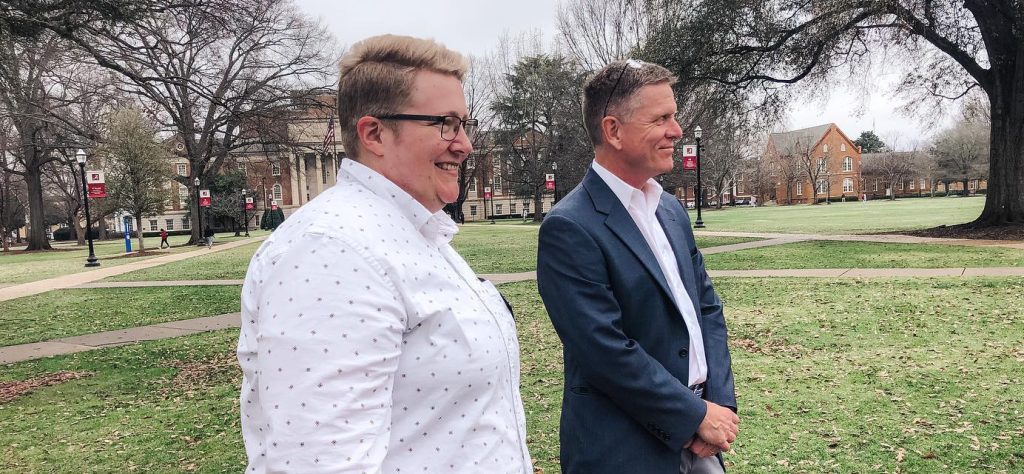 Dr. John Giggie and Isabella Garrison hosted high school students from Atlanta who are enrolled in the Galloway School’s southern queer history course. The students were led by Dr. Margaret Montgomery, a UA Department of History alumn, in an experience-based course about researching southern queer history.
Dr. John Giggie and Isabella Garrison hosted high school students from Atlanta who are enrolled in the Galloway School’s southern queer history course. The students were led by Dr. Margaret Montgomery, a UA Department of History alumn, in an experience-based course about researching southern queer history.
The visit centered on undergraduate research and experience, with an emphasis on learning the practice of local queer history. The high school students opened their visit with a campus tour led by Summersell Scholar Aliya Jaramillo. They then engaged in a roundtable discussion on the practice of local queer history, led by a group of Summersell Scholars engaged in this research. They ended their trip with a walking tour of civil rights in downtown Tuscaloosa that was developed by Dr. Giggie and led by Isabella Garrison and a group of Summersell Scholars.
The Galloway School chose to visit the Summersell Center because of the Center’s expanding and increasingly prominent Southern Queer History Project. The project began in earnest in Spring 2019, when Dr. Giggie partnered with the Invisible Histories Project to create a research course in queer history on the university’s campus. Students enrolled in the Spring 2019 course presented their research at the inaugural Queer History South Conference, hosted in Birmingham, Alabama, in March 2019.
Garrison, an alumn of the first two undergraduate courses dedicated to southern queer history at the university and a former Vivian Malone Fellow, believes partnerships like this with the Galloway School are vital to developing the program. “This visit represents much of what I hope for southern queer history at UA. Centering undergraduate achievement, empowering scholars to lead high schoolers dedicated to local queer histories, building relationships across the Southeast – all of this reflects years of work from Dr. Giggie to intentionally build a program whose core is community engagement. I hope to continue to help develop relationships between the university and high school education around southern queer history. Relationships like these are vital to how we practice southern history.”